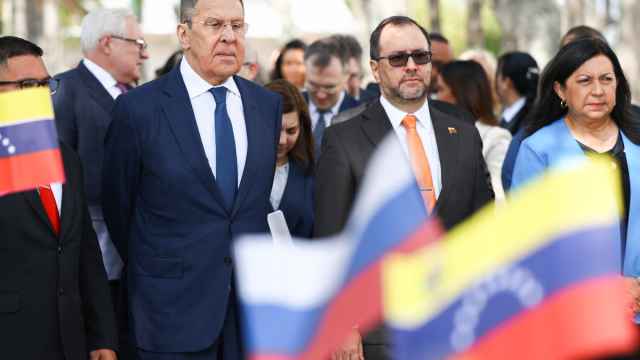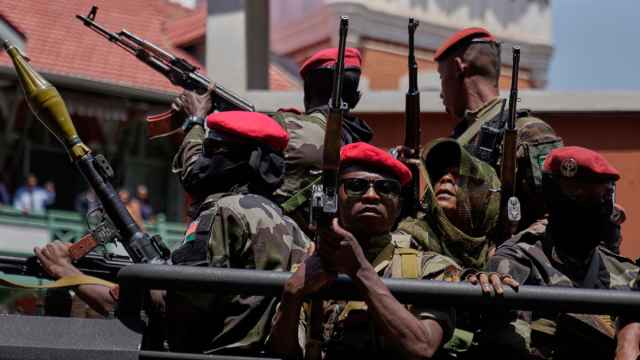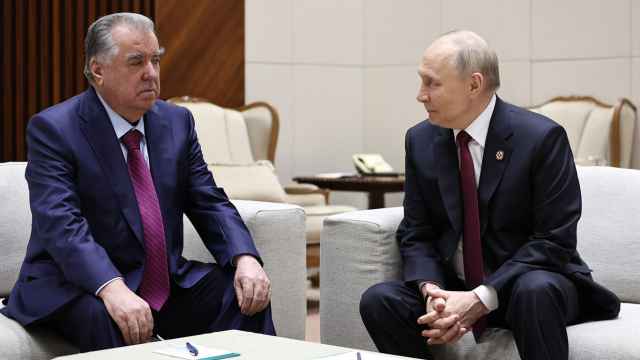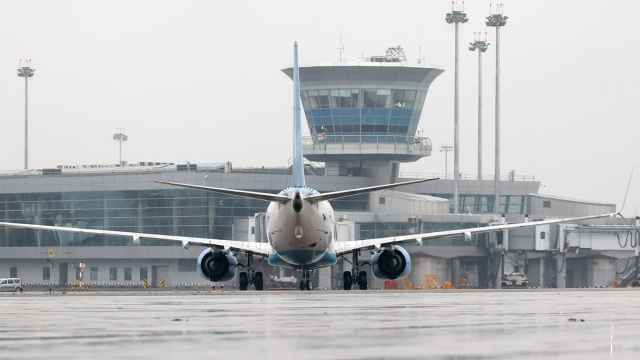OSLO — Smoke from forest fires smothering Moscow adds to health problems of "brown clouds" from Asia to the Amazon, and Russian soot may stoke global warming by hastening a thaw of Arctic ice, environmental experts said.
"Health effects of such clouds are huge," said Veerabhadran Ramanathan, chair of a UN Environment Program study of "brown clouds" blamed for dimming sunlight in cities such as Beijing or New Delhi and hitting crop growth in Asia.
The clouds — a haze of pollution from cars or coal-fired power plants, forest fires and wood and other materials burned for cooking and heating — are near-permanent and blamed for causing chronic respiratory and heart diseases.
"In Asia, just the indoor smoke — because people cook with firewood — causes over a million deaths a year," said Ramanathan, of the University of California, San Diego.
Moscow city's top health official said Monday that about 700 people were dying every day, twice as many as in normal weather, as Russia grapples with its worst-ever heat wave.
"The Russian fires are in principle similar to what you see from other brown clouds," said Henning Rodhe of Stockholm University, a vice chairman of the UNEP Atmospheric Brown Cloud study. "The difference is that this only lasts a few weeks."
Asian pollution has been blamed for dusting Himalayan glaciers with black soot that absorbs more heat than reflective snow and ice, and so speeds a thaw. Worldwide, however, the polluting haze blocks out sunlight and therefore slows climate change.
For the climate, "the main concern … is what impact the Russian smoke would have on the Arctic, in terms of black carbon and other [particles] in the smoke settling on the sea ice," Ramanathan said.
In past years, "we have had episodes of biomass burning that have brought clouds in over the Arctic," said Kim Holmen, director of research at the Norwegian Polar Institute.
Holmen, who runs a pollution monitoring station in Svalbard in the high Arctic, said the air over Russia was fairly stable in recent days, concentrating smoke over land. But a shift in winds, easing pollution in Moscow, could sweep smog northward.
Arctic sea ice, which shrinks in mid-September to an annual minimum before the winter freeze, now covers a slightly bigger area than in 2007 and 2008, the smallest extents since satellite measurements began in the 1970s.
The exposure of Arctic Ocean water to sunlight is a threat to the livelihoods of Arctic peoples and creatures such as polar bears. It also accelerates global warming, blamed by the UN panel of climate experts on mankind's use of fossil fuels.
"Such conditions are likely to become more common in the future," Rodhe said of the Russian heat wave and related fires.
Asia is most studied for brown clouds, but they also form over parts of North America, Europe, the Amazon basin and southern Africa. Burning of savannah in Sub-Saharan Africa, to clear land for crops, is a new source.
Forest and peat bog fires are burning over 1,740 square kilometers, the Russian Emergency Situations Ministry said. By contrast, official Brazilian data show that the Amazon rainforest lost 1,810 square kilometers in almost a year to June 2010.
Holmen also echoed Russian authorities' worries that the fires may also release radioactive elements locked in vegetation since the Chernobyl nuclear disaster of 1986.
Radioactive isotopes include strontium-90 and caesium-137. Other industrial pollutants such as PCBs could also be freed.
A Message from The Moscow Times:
Dear readers,
We are facing unprecedented challenges. Russia's Prosecutor General's Office has designated The Moscow Times as an "undesirable" organization, criminalizing our work and putting our staff at risk of prosecution. This follows our earlier unjust labeling as a "foreign agent."
These actions are direct attempts to silence independent journalism in Russia. The authorities claim our work "discredits the decisions of the Russian leadership." We see things differently: we strive to provide accurate, unbiased reporting on Russia.
We, the journalists of The Moscow Times, refuse to be silenced. But to continue our work, we need your help.
Your support, no matter how small, makes a world of difference. If you can, please support us monthly starting from just $2. It's quick to set up, and every contribution makes a significant impact.
By supporting The Moscow Times, you're defending open, independent journalism in the face of repression. Thank you for standing with us.
Remind me later.





